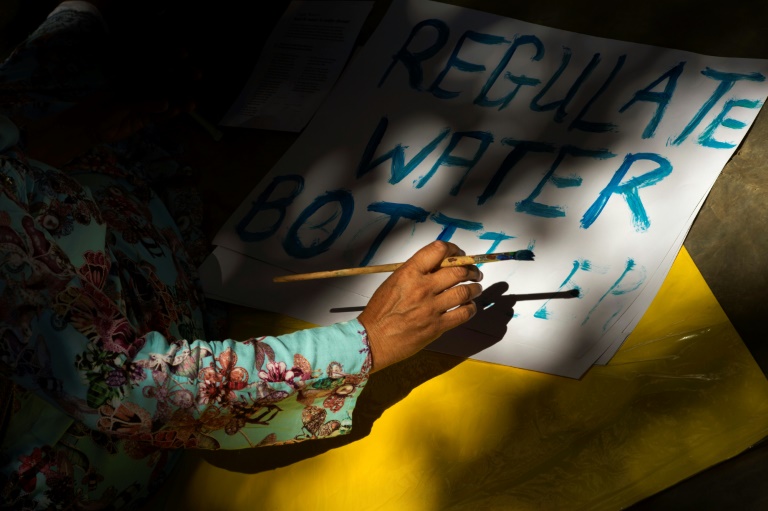Champions Cup result: Ill-disciplined Stormers thrashed by Harlequins
The government said it had elevated the drought to a “national disaster” after reassessing its “magnitude and severity”.
Cape Town is in the grip of a three-year-long drought as sparse winter rains have failed to bring relief, and dam levels have dropped dangerously low.
Rains over the weekend raised hopes that the situation would improve, but the downpours were neither heavy nor long enough to have an impact on the situation.
The statement, published in the official government gazette, means that the national government is now responsible for tackling the issue and ensuring relief efforts.
South Africa’s second city is now facing the prospect of having to turn its taps off under a so-called “Day Zero” scenario to conserve the city’s remaining water supplies.
Most Cape Town residents would be forced to queue at communal taps at 200 water points — likely under police or military guard — to collect a daily ration of 25 litres (6.6 US gallons), half the amount allowed now.
At the start of February, the target for personal daily water usage was slashed from 87 litres to 50 litres.
– ‘We will defeat Day Zero’ –

Reducing household use, which accounts for 70 percent of water consumption, has been prioritised over slashing industry’s usage
A single toilet flush uses nine litres. It is hoped that usage cuts will buy the city time to find a solution — or for the rains of the southern winter to refill depleted dams.
Reducing household use, which accounts for 70 percent of water consumption, has been prioritised over slashing industry’s usage.
On Tuesday, the predicted date for “Day Zero” was pushed back to June 4 after consumption cuts.
The widespread drought has gripped swathes of the nation’s south and west.
Opposition Democratic Alliance leader Mmusi Maimane praised residents of Cape Town, a tourist magnet, for significantly slashing their water consumption.
“If we keep consumption this low for the weeks and months to come, we will defeat ‘Day Zero’ in 2018,” said Maimane, whose party runs the Cape Town municipality — and the wider region.
The drought facing Cape Town is the worst in 100 years.
The region in which Cape Town, known as the “Mother City” is located, seasonally receives rains in the southern hemisphere winter season running from around June through August.
Download our app and read this and other great stories on the move. Available for Android and iOS.